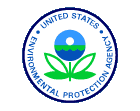SWAPP Quick Links
Definitions
Contact Us

© Copyright 2021 Florida Department of Environmental Protection
Public Water Systems
DEP has the primary role of regulating public water systems in Florida. A public
water system is defined as one that provides water to 25 or more people for at least
60 days each year or serves 15 or more service connections. These public water
systems may be publicly or privately owned and operated.
At this time there are about 6,500 public water systems, and they are divided into three categories:
Very small water systems which provide water for public consumption, but which do not fall under the above definitions, are regulated by the Department of Health and the county health departments. Bottled water and water vending machines are regulated by the Florida Department of Agriculture and Consumer Services, Division of Food Safety.
Federal drinking water standards require community systems and all non- transient non-community systems to provide DEP with the results of a full water quality analysis once every three years for chemical and radiological contaminants and monthly for biological contaminants. An additional monitoring requirement for public drinking water systems is contained within the Total Coliform (bacteriological) Rule. Community and non-transient non-community systems are required to monitor monthly, while transient non-community systems are required to test every three months.
DEP Drinking Water Website:
https://floridadep.gov/water/source-drinking-water
At this time there are about 6,500 public water systems, and they are divided into three categories:
- Community - Serves at least 15 service connections used by year-round residents or regularly serves at least 25 year-round residents. This group provides water to residences and includes a range of sizes from small mobile home courts to large city utilities.
- Transient Non-Community - serves at least twenty-five people or fifteen connections, but the population is characterized as flow-through traffic, such as with stores, RV parks, hotels or churches that are open at least 60 days a year.
- Non-Transient Non-Community - Provides water to the same 25 individuals for six months or more each year. These systems include schools, factories or large businesses with their own drinking water supplies.
Very small water systems which provide water for public consumption, but which do not fall under the above definitions, are regulated by the Department of Health and the county health departments. Bottled water and water vending machines are regulated by the Florida Department of Agriculture and Consumer Services, Division of Food Safety.
Federal drinking water standards require community systems and all non- transient non-community systems to provide DEP with the results of a full water quality analysis once every three years for chemical and radiological contaminants and monthly for biological contaminants. An additional monitoring requirement for public drinking water systems is contained within the Total Coliform (bacteriological) Rule. Community and non-transient non-community systems are required to monitor monthly, while transient non-community systems are required to test every three months.
DEP Drinking Water Website:
https://floridadep.gov/water/source-drinking-water